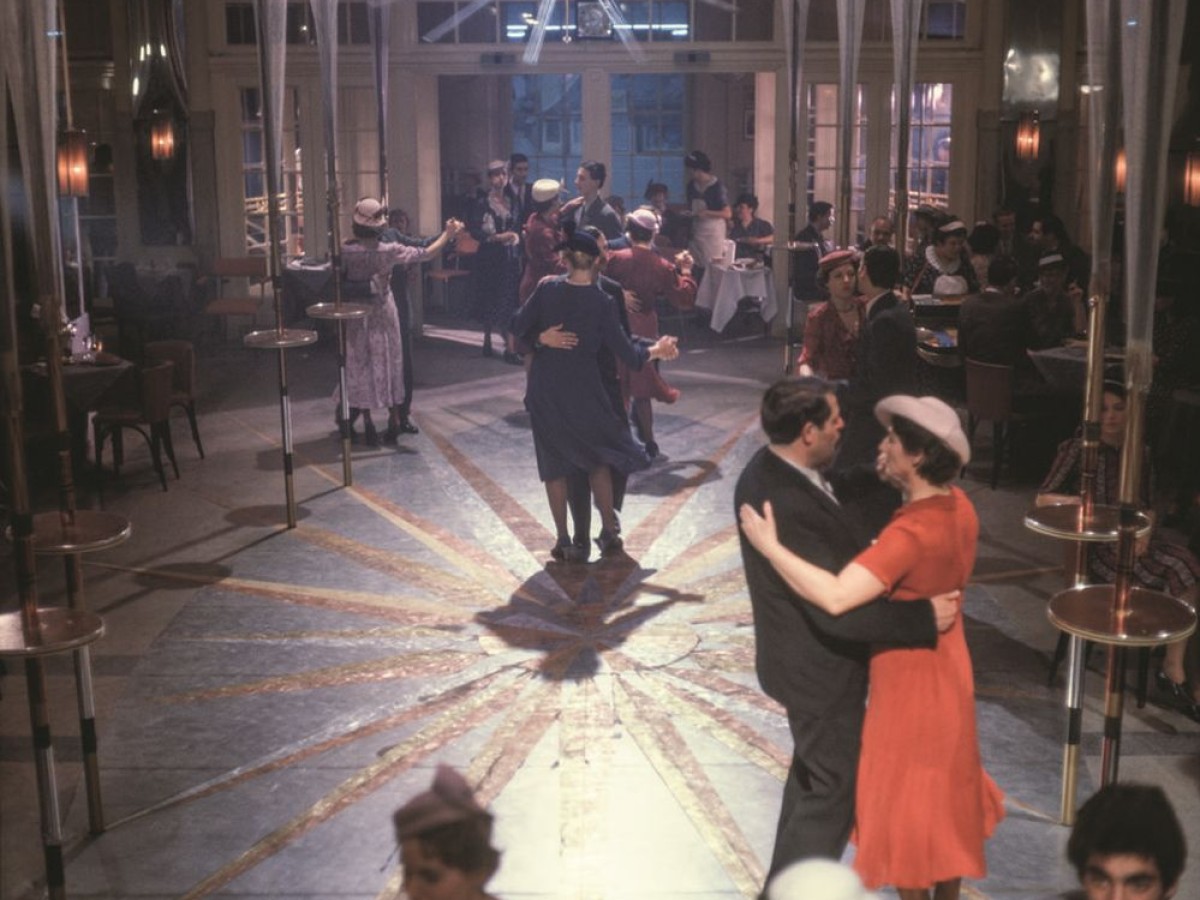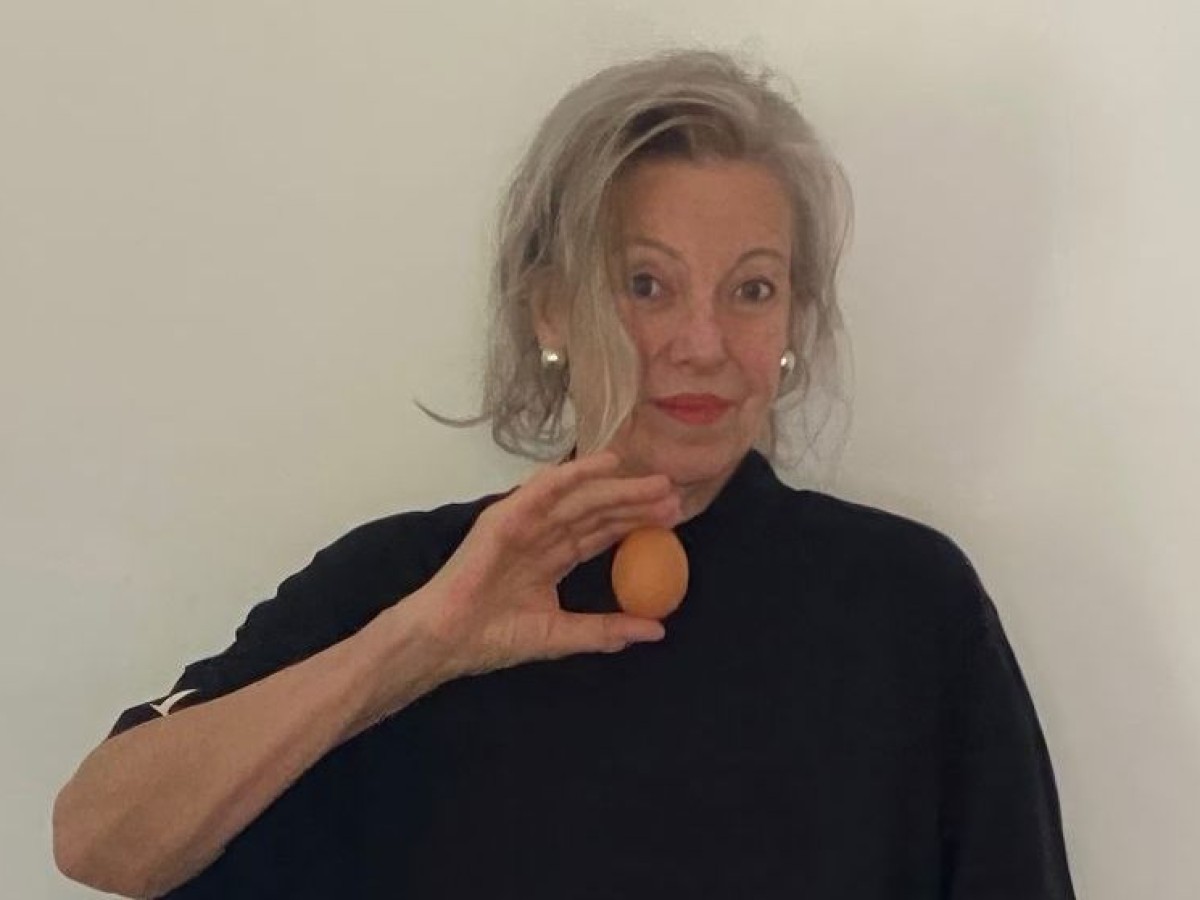Conversations with Women Film Pioneers:
Angela Hareiter
March 13, 2024
Women directors, screenwriters, editors, cinematographers, and set designers have left their mark on Austrian film and TV, and yet each generation of filmgoers has had to rediscover their names anew – an ongoing canonization of their work only began recently. While revolutionary women from the film industry long taught elsewhere, the expertise of women from the Austrian film industry has seldom been institutionalized and has been (even actively) denied to students. In a series of 10 two-hour talks, we will bring several of these film pioneers front and center, screen individual films, and shed light on their work through film clips. An evening for passing on the flame. The talks will be moderated by a new generation of people close to the industry. The goal: the exchange of experiences, networking, world revolution – you name it. (Wilbirg Brainin-Donnenberg, Julia Pühringer / Translation: Ted Fendt)
Production Designer Angela Hareiter
Angela Hareiter is an important pioneer of production design in Austrian cinema. After studying architecture at Vienna’s Technical University, she co-founded the avant-garde architect’s group Missing Link (with Otto Kapfinger and Adolf Krischanitz), which also made the short films 16. November: Eine Utopie in 9 wirklichen Bildern (1972) and Die verstoßene Stadt (1974). Hareiter designed the sets for Franz Novotny and Otto M. Zykan's scandalous film Die Staatsoperette (1977) and for her production design on the American TV series Holocaust (1978), she was nominated for the Emmy Award for Outstanding Art Direction by the Academy of Television Arts and Sciences. She pursued her interest in political film in her close collaboration with screenwriter and director Käthe Kratz, with whom she worked on eight films together (including the feminist and historically important Lebenslinien cycle). Many national films (such as Das Plakat – Arbeitersaga Teil 1) and international films followed (including collaborations with Liliana Cavani). In 1987, Hareiter founded the Austrian Film Designers Association. She has occasionally made set design for advertisements and film installations at the intersection of fine arts, including for film artist Penelope Georgiou (1997) and the exhibition Fate of Alien Modes at the Secession (2003).
As a renowned architect and designer, Angela Hareiter conceived the major event Forum Design in Linz in 1980 (together with Helmuth Gsöllpointer and Laurids Ortner) and co-edited the book Design ist unsichtbar. She also designed the interior of Vienna's Museumsquartier (Leopold Museum, Mumok, Kunsthalle Wien). Her work on houses remains committed to their histories and maintaining a close dialogue with nature. She has also made furniture, objects, photographs, and exhibitions with a wide array of arts. 2024 sees the publication of the book Angela Hareiter: En passant – Fine Arts Applied. (Wilbirg Brainin-Donnenberg / Translation: Ted Fendt)
After the screening of the film Lebenslinien III – Elisabeth. Die Erde versinkt (1983, Käthe Kratz), Katharina Wöppermann and Wilbirg Brainin-Donnenberg moderate the talk with Angela Hareiter.
Idea: Julia Pühringer. Concept and realization: Wilbirg Brainin-Donnenberg and Julia Pühringer in collaboration with FC GLORIA Frauen Vernetzung Film.
Women directors, screenwriters, editors, cinematographers, and set designers have left their mark on Austrian film and TV, and yet each generation of filmgoers has had to rediscover their names anew – an ongoing canonization of their work only began recently. While revolutionary women from the film industry long taught elsewhere, the expertise of women from the Austrian film industry has seldom been institutionalized and has been (even actively) denied to students. In a series of 10 two-hour talks, we will bring several of these film pioneers front and center, screen individual films, and shed light on their work through film clips. An evening for passing on the flame. The talks will be moderated by a new generation of people close to the industry. The goal: the exchange of experiences, networking, world revolution – you name it. (Wilbirg Brainin-Donnenberg, Julia Pühringer / Translation: Ted Fendt)
Production Designer Angela Hareiter
Angela Hareiter is an important pioneer of production design in Austrian cinema. After studying architecture at Vienna’s Technical University, she co-founded the avant-garde architect’s group Missing Link (with Otto Kapfinger and Adolf Krischanitz), which also made the short films 16. November: Eine Utopie in 9 wirklichen Bildern (1972) and Die verstoßene Stadt (1974). Hareiter designed the sets for Franz Novotny and Otto M. Zykan's scandalous film Die Staatsoperette (1977) and for her production design on the American TV series Holocaust (1978), she was nominated for the Emmy Award for Outstanding Art Direction by the Academy of Television Arts and Sciences. She pursued her interest in political film in her close collaboration with screenwriter and director Käthe Kratz, with whom she worked on eight films together (including the feminist and historically important Lebenslinien cycle). Many national films (such as Das Plakat – Arbeitersaga Teil 1) and international films followed (including collaborations with Liliana Cavani). In 1987, Hareiter founded the Austrian Film Designers Association. She has occasionally made set design for advertisements and film installations at the intersection of fine arts, including for film artist Penelope Georgiou (1997) and the exhibition Fate of Alien Modes at the Secession (2003).
As a renowned architect and designer, Angela Hareiter conceived the major event Forum Design in Linz in 1980 (together with Helmuth Gsöllpointer and Laurids Ortner) and co-edited the book Design ist unsichtbar. She also designed the interior of Vienna's Museumsquartier (Leopold Museum, Mumok, Kunsthalle Wien). Her work on houses remains committed to their histories and maintaining a close dialogue with nature. She has also made furniture, objects, photographs, and exhibitions with a wide array of arts. 2024 sees the publication of the book Angela Hareiter: En passant – Fine Arts Applied. (Wilbirg Brainin-Donnenberg / Translation: Ted Fendt)
After the screening of the film Lebenslinien III – Elisabeth. Die Erde versinkt (1983, Käthe Kratz), Katharina Wöppermann and Wilbirg Brainin-Donnenberg moderate the talk with Angela Hareiter.
Idea: Julia Pühringer. Concept and realization: Wilbirg Brainin-Donnenberg and Julia Pühringer in collaboration with FC GLORIA Frauen Vernetzung Film.
Related materials
Photos 2024 - Angela Hareiter

